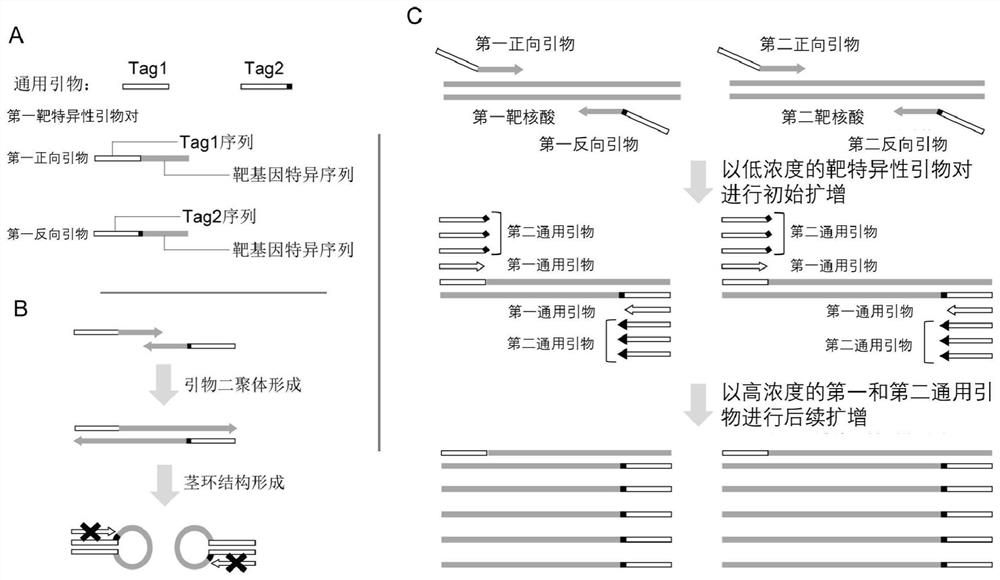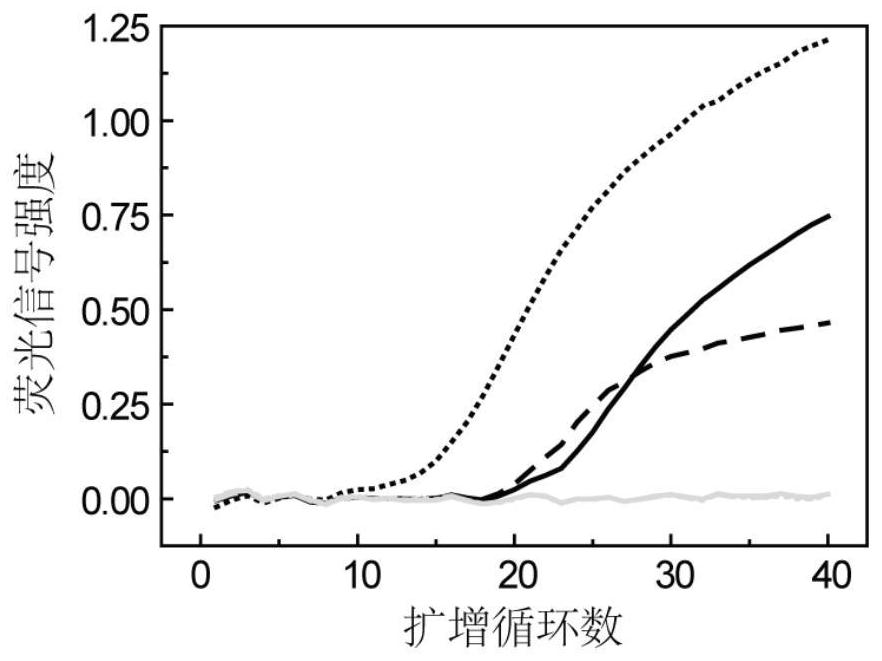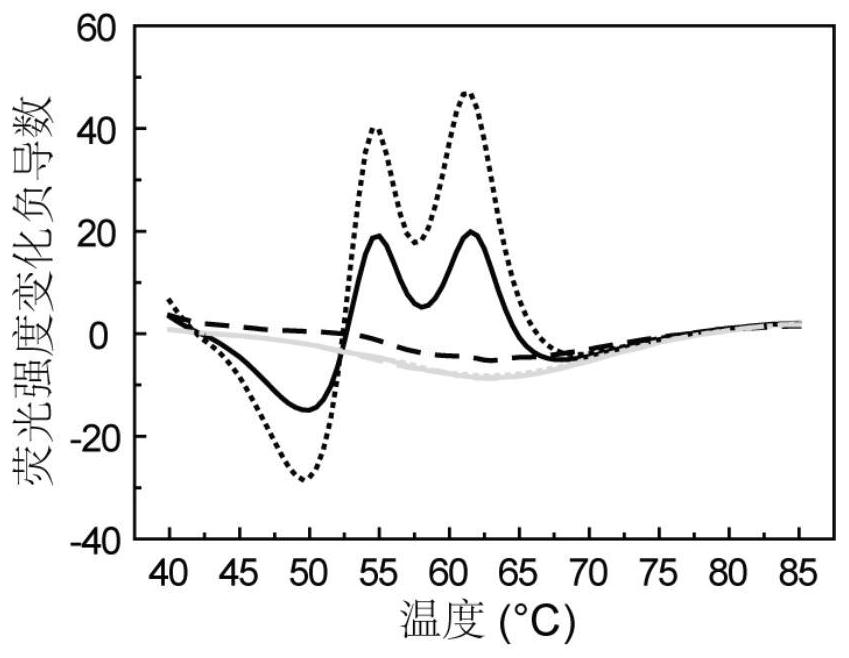Method for asymmetrically amplifying multiple target nucleic acids
A target nucleic acid and nucleotide technology, which is applied in the field of asymmetric amplification of multiple target nucleic acids, can solve the problems of application limitations, inability to produce single-stranded products, etc., and achieve the effect of improving specificity
- Summary
- Abstract
- Description
- Claims
- Application Information
AI Technical Summary
Problems solved by technology
Method used
Image
Examples
Embodiment 1
[0173] In this example, the HAND system, the common asymmetric PCR system and the system (primer set) of the present invention were investigated by taking the DNA fragment covering the gene polymorphism site rs8027171 on human chromosome 15 as the target nucleic acid to be amplified A situation where a single-stranded nucleic acid product is produced. The sequences of the primers and probes used in this example are shown in Table 1. The instrument used in this example is a SLAN 96 real-time fluorescent PCR instrument (Xiamen Zhishan Biotechnology Co., Ltd., Xiamen).
[0174] In short, in this example, a 25 μL PCR reaction system was used for PCR amplification and melting curve analysis. The PCR reaction system included: 1×Taq PCR buffer (TaKaRa, Beijing), 5.0 mM MgCl 2 , 0.2mM dNTPs, 1UTaq polymerase (TaKaRa, Beijing), 0.3μM rs8027171-P probe, 5μL human genomic DNA (the genotype of rs8027171 is G / A heterozygous) or negative control (water), and primers; wherein,
[0175] (1)...
Embodiment 2
[0187] In this example, the DNA fragment covering the gene polymorphism site rs8027171 on human chromosome 15 was used as the target nucleic acid to be amplified, and the influence of the ratio of the first and second universal primers on asymmetric amplification was investigated . The sequences of the primers and probes used in this example are shown in Table 1. The instrument used in this example is a SLAN 96 real-time fluorescent PCR instrument.
[0188] In short, in this example, a 25 μL PCR reaction system was used for PCR amplification and melting curve analysis, and the PCR reaction system included: 1×Taq PCR buffer, 5.0 mM MgCl 2, 0.2mM dNTPs, 1U Taq DNA polymerase, 5μL human genomic DNA (the genotype of rs8027171 is G / A heterozygous), 0.02μM rs8027171-F, 0.02μM rs8027171-R, 0.3μM rs8027171-P probe, 0.06μM Tag 1 primer, and Tag 2 primer in the following amounts: 0.06 μM (Tag 1 / Tag 2 = 1 / 1), 0.24 μM (Tag 1 / Tag 2 = 1 / 4), 0.48 μM (Tag 1 / Tag 2 = 1 / 8), 0.72 μM (Tag 1 / Ta...
Embodiment 3
[0192] In this example, the genotyping of gene polymorphism sites rs48189298 and rs60871880 is taken as an example to illustrate that the system of the present invention can realize double and asymmetric amplification in a single reaction tube and be used for probe melting curve analysis. The sequences of the primers and probes used in this example are shown in Table 2. The instrument used in this example is a SLAN 96 real-time fluorescent PCR instrument.
[0193] In short, in this example, a 25 μL PCR reaction system was used for PCR amplification and melting curve analysis, and the PCR reaction system included: 1×Taq PCR buffer, 5.0 mM MgCl 2 , 0.2 mM dNTPs, 1 U Taq DNA polymerase, 0.04 μM rs48189298-F, 0.04 μM rs48189298-R, 0.4 μM rs48189298-P, 0.06 μM rs60871880-F, 0.06 μM rs60871880-R, 0.4 μM Tag 10.8 rs3087 Primers, 1.6 μM Tag2 primer, 5 μL human genomic DNA or negative control (water). In this embodiment, two samples (sample 1 and 2) were detected, wherein the genotyp...
PUM
 Login to View More
Login to View More Abstract
Description
Claims
Application Information
 Login to View More
Login to View More - R&D
- Intellectual Property
- Life Sciences
- Materials
- Tech Scout
- Unparalleled Data Quality
- Higher Quality Content
- 60% Fewer Hallucinations
Browse by: Latest US Patents, China's latest patents, Technical Efficacy Thesaurus, Application Domain, Technology Topic, Popular Technical Reports.
© 2025 PatSnap. All rights reserved.Legal|Privacy policy|Modern Slavery Act Transparency Statement|Sitemap|About US| Contact US: help@patsnap.com



